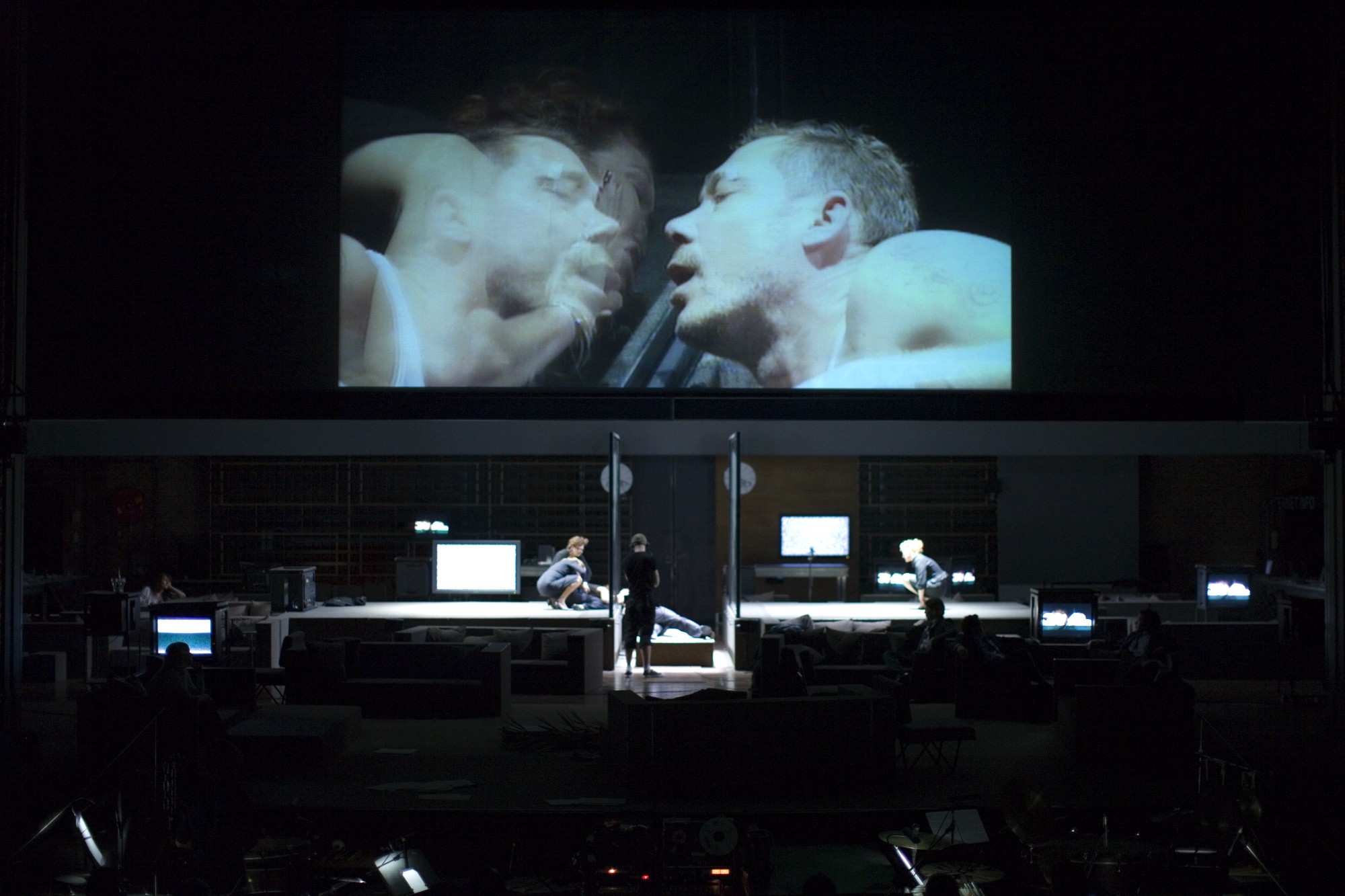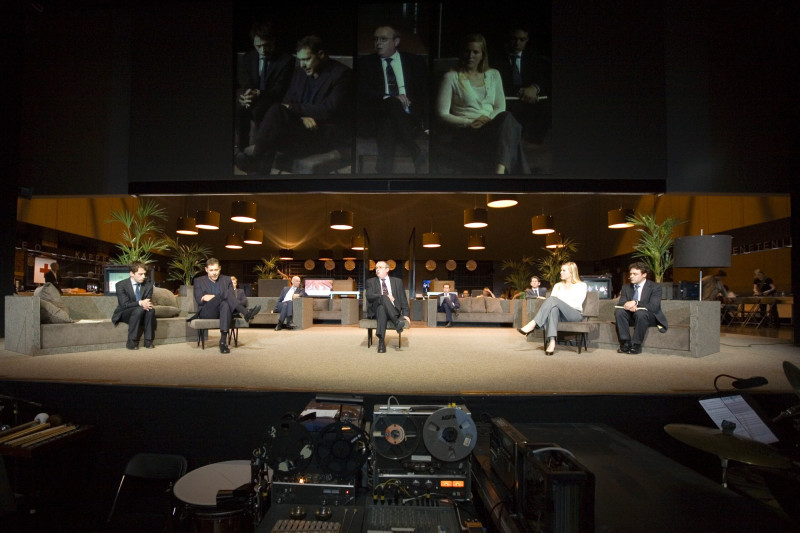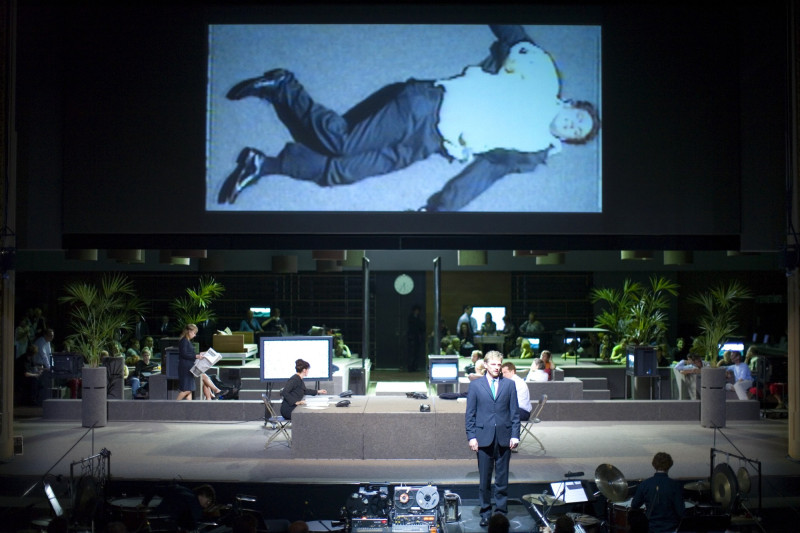Roman Tragedies
Ivo van Hove stages three plays by Shakespeare – Coriolanus, Julius Caesar, Antonius & Cleopatra – as a continuous performance presenting the political act. The ideals, opinions and personal aims of politicians are simply put next to each other, Shakespeare does not take sides. The three Roman Tragedies show politics in all facets.
Coriolanus is featured during the raise of the Roman Republique. The hero (Fedja van Huêt) refuses to accept the changing political constellation and is banished because of his rebellion against the people and its new representatives. Eventually he fights his hometown of Rome.
Julius Caesar (Hugo Koolschijn) on the contrary gains his power because of the fact he knows how to handle the plebs. Certain politicians fear dictatorship and murder him to save democracy.
In Anthony & Cleopatra, world politics and passionate love between the Roman Anthony (Hans Kesting) and the Egyptian Cleopatra (Chris Nietvelt) intertwine . Anthony’s inner conflict between public responsibility and the will of his heart eventually leads to a slaughter.
Ivo van Hove: direction
William Shakespeare: author Coriolanus, Julius Caesar, Antony & Cleopatra
Eric Sleichim: music composition and sound design
BL!NDMAN [drums]
Hannes Nieuwlaet
Yves Goemaere
Ward De Ketelaere
Christiaan Saris
Tom Kleijn: translation
Bart van den Eynde: dramaturgy
Jan Versweyveld: scenography and lighting design
Lies Van Assche: costumes
Tal Yarden: video
Toneelgroep Amsterdam: actors
a production of Toneelgroep Amsterdam
a co-production of Holland festival, De Munt / La Monnaie Brussel / Bruxelles, Kaaitheater Brussels, Muziektheater Transparant, BL!NDMAN





Agenda
Politics, people and ideals
The Roman Tragedies are Shakespeare‘s foremost political plays. Other than his king drama’s they do not speak about the enjoyment of power but focus on political mechanisms and the social context. Without prejudice Shakespeare describes cause and consequence of political structures in a changing society. Three times he shows the success and failure of a politician, his ideals but also his personal motives that are involved.



